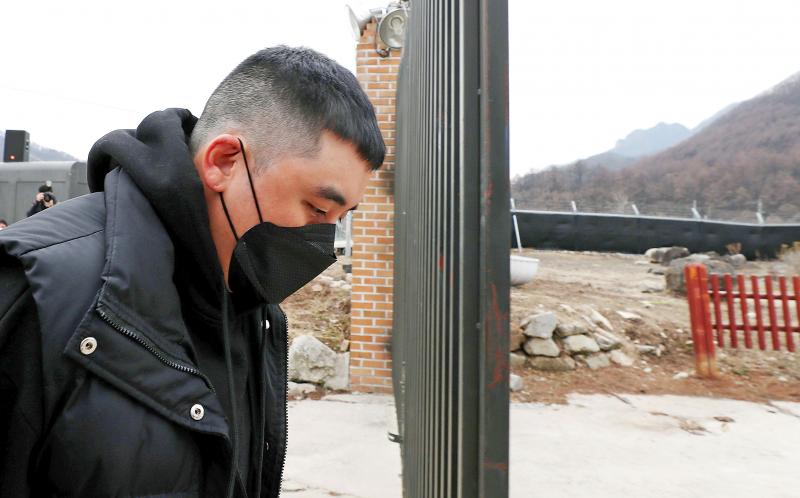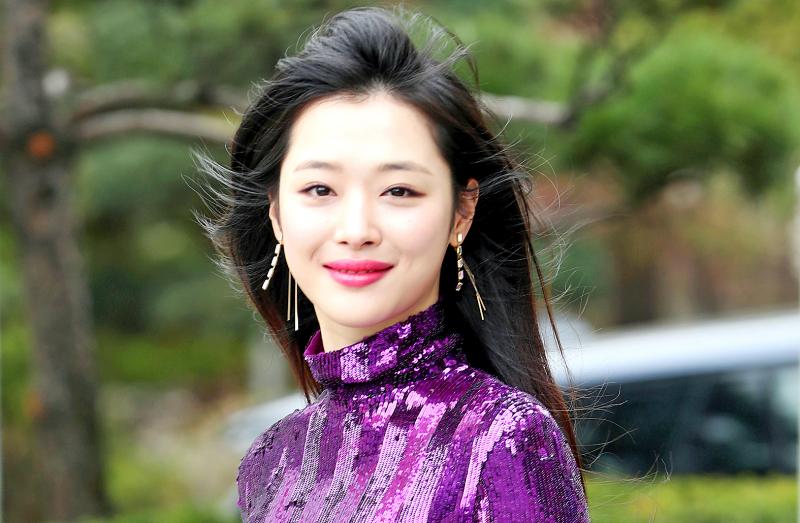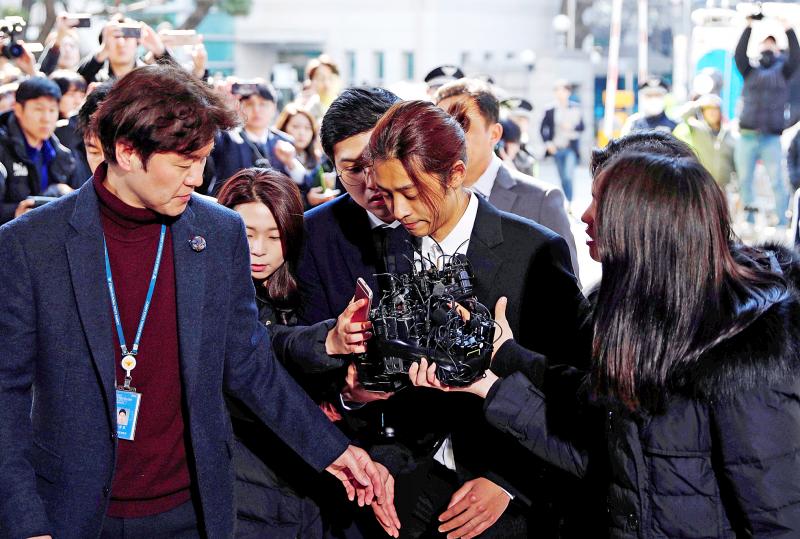As students wait outside an exam room in Seoul’s affluent Gangnam district, the air is tense. A girl in a school uniform rocks a guitar back and forth in her hands next to a boy who stares nervously into his fringe. Another girl sitting on a nearby bench adjusts her crop top. But in a neighborhood filled with English and maths crammers, this is no normal exam room. Mudoctor Academy is a K-pop training school, where dozens of students between the ages of 12 and 26 line up for their chance to audition for a visiting entertainment scout.
Kevin Lee is among this group of hopefuls. At 19, he has already moonlighted as a backup dancer for the phenomenally successful K-pop group BTS. He estimates that he has attended more than 50 K-pop auditions over the past four years. But this hasn’t been enough.
Concerned about his age — most entertainment companies recruit school-aged trainees — Lee says he will give up on his dream if he isn’t accepted into a major entertainment company this year.

Photo: AFP
“It’s hard not to think about failure,” he says. “They say at 17 you have a 50 percent chance of becoming a trainee. I’m already 19 so my chances are slim.”
Lee is not alone — for many young Koreans K-pop is a desirable career choice and there are many academies like Mudoctor. Who wouldn’t want to be a part of this pop behemoth that has become South Korea’s best-known cultural export? It’s an industry worth US$5 billion; BTS alone sold more albums than Taylor Swift , Billie Eilish and Ariana Grande last year. But something is very wrong inside K-pop, and it points to a deeper malaise throughout South Korea.
There has been a spate of suicides and high-profile sex scandals involving K-pop stars in recent times. At the height of their fame, these men and women seem to have buckled under the strain, unable to live up to the demands placed on them to be polished, picture-perfect ambassadors of this effervescent pop music. Kim Jong-hyun , 27, a member of SHINee, took his own life in 2017 after speaking about the intense pressures brought on by success.

Photo: Reuters
In March last year, several male K-pop stars, including Seungri, a member of boyband Big Bang, Choi Jong-hoon, a former member of FT Island, and singer-songwriter Jung Joon-young were implicated in a spycam sexual abuse scandal, after Jung shared videos of women in a group chat. The case resulted in five- and six-year prison sentences for them respectively for their roles in gang raping drunk, unconscious women.
Allegations also arose over Seungri’s ties to Burning Sun, a nightclub he founded where date-rape and sexual assault allegedly took place.
Then in October last year, Sulli , 25, a former member of the girl group f(x) killed herself. A month later, Goo Hara , 28, a former member of the group Kara and a close friend of Sulli, also took her own life.

Photo: Reuters
It soon emerged that both women had been harassed online for months, if not years. Sulli had experienced sexist abuse and cyber-bullying from thousands of faceless male “anti-fans” (online haters) over her conduct and appearance. Goo had been hounded over a court case with an ex-boyfriend over a sex tape that had allegedly been filmed without her consent.
According to Mano Lee, a Seoul-based K-pop columnist, the sexism and misogyny that female stars face is a symptom of the way women are treated in wider society.
‘SECRET CAMERA’
“A lot of Korean women can relate to the issues that female celebrities deal with. They have experienced it themselves. While many feel unsafe due to the pervasiveness of molka, gender-based violence and victim-shaming,” she says.
Molka — from mollae, Korean for secret, and ka for camera — means the illicit filming of women. There has been widespread outrage over the spycam epidemic. In 2018, almost 6,800 cases of hidden camera crimes were reported to the supreme prosecutors’ office. In some cases, cameras were hidden in women’s public toilets and motel rooms, others involved the filming and sharing of videos of women taken by partners and former partners.
The revelations of the Jung Joon-young spycam scandal provoked fury across the nation.
“K-pop tries to present a cleansed image of male stars as being kind, generous, that they are unlike patriarchal, sexist and unstylish Korean men,” says John Lie, a sociology professor at the
University of California, Berkeley. “The shock came because of the gulf between the illusion and the reality.”
Yet, though K-pop stars are expected to live up to all but impossible standards, many might say that the pressure to be perfect is also intense for ordinary Koreans — K-pop simply takes what’s there in wider society and intensifies it.
“In order to get ahead in Korea, you have to step on someone else,” says Justin Shin, a Seoul-based fashion photographer who works closely with K-pop idols. “It’s like this from kindergarten, you have to leap ahead of all the other kids. All their lives, Koreans are exposed to competition — constantly being tested, evaluated and scored over their actions and academic achievements. It’s super-competitive.”
THE RIGHT ‘SPECS’
For most South Koreans, success means having the right “specs” or specifications: everyone is judged in terms of their family background, level of education, job title, wealth and appearance. “If you went to a great school, or you have a nice body that you worked hard to cultivate, or if you have an expensive foreign car — these are all different forms of specs,” says Michael Hurt, a sociologist at the University of Seoul.
For women in particular, having the right specs means being attractive and excelling at homemaking. But, says Shin Gi-wook, professor of sociology at Stanford University, the natural consequences of such a highly competitive society are jealousy and bullying.
“Those who are more successful than others easily become the center of gossip and rumors,” he says. In Sulli and Goo’s cases, the public shaming they experienced can be seen as a more extreme example of the scrutiny and criticism all Korean women are subjected to.
Sulli, whose real name was Choi Jin-ri, was among the few K-pop stars who supported the nation’s feminist “no bra” movement, daring to challenge Korean society’s strict female dress codes. For this, as well as for her past relationship with Choiza, a fellow musician 14 years her senior, which began when she was 19, Sulli became the target of online abuse — K-pop stars are expected to stay single for years and not date during their teens.
Sulli tried to address her detractors by appearing on a TV talk show about the cyber-bullying that celebrities face, telling viewers, “My life is actually empty. I feel like I’m lying to everyone by pretending to be happy on the outside.”
“So many celebrities have taken their lives because of this kind of criticism,” says one Korean jewellery designer who knew Sulli for many years and asked not to be named.
Lee explains that another K-pop star he works with once received a bloody dagger in the mail “with real blood” and that receiving angry threats and letters was normal for many K-pop idols.
Like Sulli, Goo had been the target of severe online bullying since late 2018, when she entered a court battle against Choi Jong-bum, an ex-boyfriend who she claimed had threatened to release a sex video allegedly filmed without her consent. Choi was later acquitted and although the video was never released, Goo suffered from the events and her all-important K-pop image was badly damaged.
“Korean celebrities who take their lives tend to be women, I don’t think that’s an accident,” says Hurt. “I think there’s a kind of precariousness that female stars have to live with that men don’t.”
It’s certainly true that male K-pop stars don’t have to worry about wearing the wrong suit, for instance, while, for female stars, the risks of deviating even slightly from strict expectations about appearance are dire.
“If you’re a woman your career can always end in an instant,” says Hurt. “You can be a top star but they’ll come after you with pitchforks. These women are stars, yet society is stacked against them. When police are coming at you, turning a victim into victimizer, it seems like a man can attack a female idol who has top lawyers and a big entertainment company behind her and still he has more protection.”
INTENSE TRAINING
Back at Mudoctor Academy, Kim Tae-heon, 21, waits for his audition. Kim grew up in South Gyeongsang province in the rural southern region of the country. He moved to Seoul to attend the school two years ago and spends up to nine hours every day practising his singing, dancing and acting skills at the academy.
“Besides the obvious performance skills, you need a strong, stable mind to be able to do this,” he says. “I’ve seen people disappear along the way — at least six out of 10 will give up when they realize there are so many others who are better at this.”
For Kim, despite the intense competition, there is nothing else he could see himself doing. “Since I was young, I’ve always enjoyed being onstage. At school I would volunteer to sing or dance in front of others. It’s my joy in life.”
According to the academy’s founder Yoon Jin-hee, 386 former students — including Hye Bin from Momoland and Song Min-ho from Winner — have been recruited by major K-pop firms over the past five years. However, he admits the success rate is still very low. “Only 5-10 percent of our students make it past auditions,” he says. “I find the ones who are successful are the ones who practice all day. I see them at the academy all the time.”
Yoon says that around 40 percent of current students live outside Seoul. Many travel for hours every week by train or bus to get to and from the school, where they pay up to KRW600,000 (US$487) a month for the opportunity to become an idol. This work ethic is the backbone of K-pop according to Yoon.
“The reason K-pop became so successful was because of its intense training system? And if these companies want to continue innovating the industry, they need to upgrade the training system. These days, training is even longer and harder. But most of the better entertainment companies try to make this process as enjoyable as they can for trainees.”
Even for those who graduate to stardom, the hard work doesn’t end.
Kevin Lee realized this while working behind the scenes with BTS.
“When we went to dance practice for their shows, they’d always be arriving straight from their tours in other countries,” he says. “As soon as they get back they would go to practice for seven hours a day.
REFLECTION OF SOCIETY
While some criticism regarding K-pop’s grueling training process is valid, Yoon says South Koreans study just as much to pass suneung, the country’s national university entrance exam, and work as hard at entering other careers, such as the civil service and legal professions.
“K-pop is portrayed as this factory-like industry, but I question this view, because everyone in Korea is forced to study for years. If anything, people who are training to become idols are training for something they actually want to become,” he says. “They are living every day with a purpose and with a dream. And there’s freedom in that.”
Many, however, see things differently. The demanding nature of the industry can mean signing contracts that can leave stars feeling trapped. According to K-pop star Prince Mak, contracts can lock you in for up to 15 years, and the term doesn’t begin to count down until you are deemed a success, which can lock you in for years beyond the top line, while you are trained.
In the wake of their the deaths of Sulli and Goo, the South Korean government discussed passing a new bill that would introduce cyber-bullying education at schools and workplaces. However, many believe policy alone is no solution, and the cause goes straight to the heart of societal expectations.
“K-pop has gone international and it brings pride to the country, but there’s this cultural program of gender and social norms that’s impossible to win,” says Hurt. “You’d have to really thread a needle in a particular and perfect way, and I think that’s the thing about these K-pop stars going out into the spotlight? They can’t really win.”

Growing up in a rural, religious community in western Canada, Kyle McCarthy loved hockey, but once he came out at 19, he quit, convinced being openly gay and an active player was untenable. So the 32-year-old says he is “very surprised” by the runaway success of Heated Rivalry, a Canadian-made series about the romance between two closeted gay players in a sport that has historically made gay men feel unwelcome. Ben Baby, the 43-year-old commissioner of the Toronto Gay Hockey Association (TGHA), calls the success of the show — which has catapulted its young lead actors to stardom -- “shocking,” and says

The 2018 nine-in-one local elections were a wild ride that no one saw coming. Entering that year, the Chinese Nationalist Party (KMT) was demoralized and in disarray — and fearing an existential crisis. By the end of the year, the party was riding high and swept most of the country in a landslide, including toppling the Democratic Progressive Party (DPP) in their Kaohsiung stronghold. Could something like that happen again on the DPP side in this year’s nine-in-one elections? The short answer is not exactly; the conditions were very specific. However, it does illustrate how swiftly every assumption early in an

Inside an ordinary-looking townhouse on a narrow road in central Kaohsiung, Tsai A-li (蔡阿李) raised her three children alone for 15 years. As far as the children knew, their father was away working in the US. They were kept in the dark for as long as possible by their mother, for the truth was perhaps too sad and unjust for their young minds to bear. The family home of White Terror victim Ko Chi-hua (柯旗化) is now open to the public. Admission is free and it is just a short walk from the Kaohsiung train station. Walk two blocks south along Jhongshan

Francis William White, an Englishman who late in the 1860s served as Commissioner of the Imperial Customs Service in Tainan, published the tale of a jaunt he took one winter in 1868: A visit to the interior of south Formosa (1870). White’s journey took him into the mountains, where he mused on the difficult terrain and the ease with which his little group could be ambushed in the crags and dense vegetation. At one point he stays at the house of a local near a stream on the border of indigenous territory: “Their matchlocks, which were kept in excellent order,